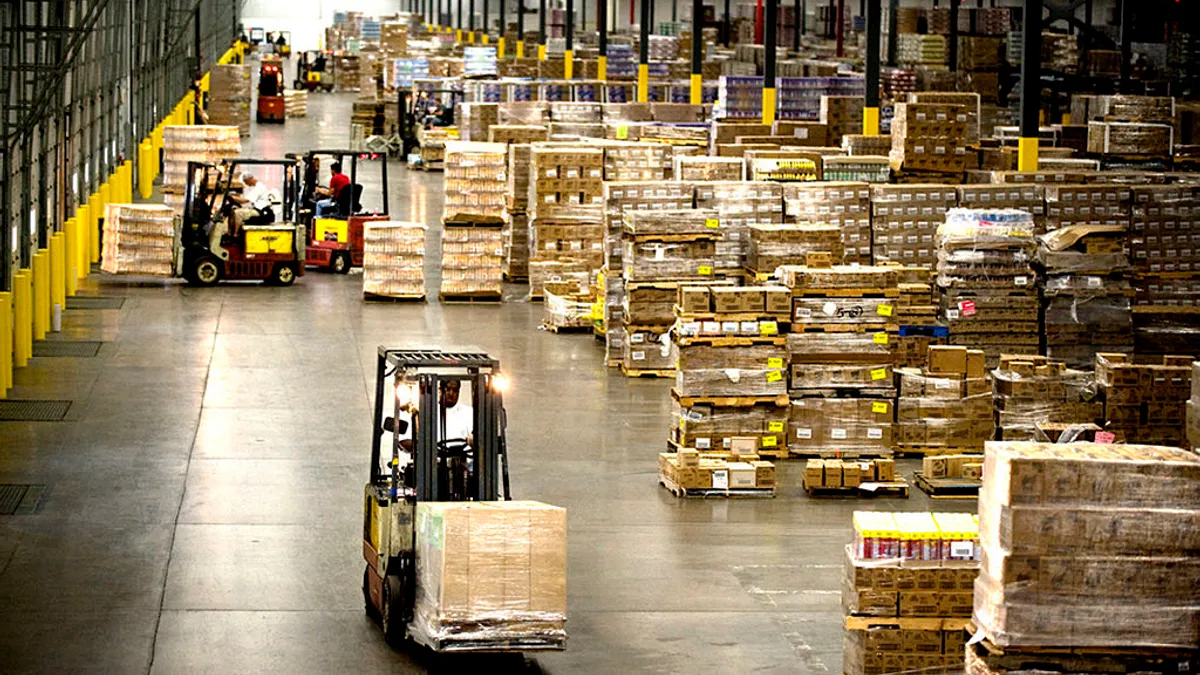Dive Brief:
-
More than three-quarters (77%) of food manufacturers say increased supply chain complexity is the fastest-growing risk for business continuity, USI Senior Vice President and Chief Sales Officer Sandra Usleman wrote in Food Manufacturing.
-
Seven in ten firms said they lacked visibility over their entire supply chain, according to a Business Continuity Institute survey.
-
Usleman recommended that food manufacturers should develop a risk management plan to protect them from loss of goods in the supply chain — from ingredient production to full product recall.
Dive Insight:
Increasingly globalized supply chains have led to a lack of visibility for many food companies, meaning that their business could be at risk. About 10% to 15% of food consumed in the United States is imported, according to Food and Drug Administration figures, with seafood, fruits, vegetables and spices among the most commonly imported products.
Product losses could stem from several points in the supply chain, including interruptions in ingredient supply, food ingredient fraud, or post-production spoilage if foods are incorrectly handled. For most small and medium-sized food companies, this risk is out of their hands, and the expense of an associated recall could force them out of business.
Although risk is often not in a company’s control, there are steps manufacturers can take to reduce and soften the effects of supply chain failures.
Supply chain managers see comprehensive insurance is an important risk mitigation tool, according to a report from The Global Supply Chain Institute. However, its research also found that 90% of companies did not quantify risk when outsourcing production. Better risk assessment — as well as having a risk management process in place for when the worst happens — are crucial for business protection.
Relatively few companies have a plan in place to deal with supply chain disruptions, but having one could bring a distinct competitive advantage, and help retain consumer trust.
Additionally, as more provisions of the Food Safety Modernization Act take effect, more attention will be paid to prevention. Large manufacturers have already come up with plans to prevent contamination in their facilities. Soon, provisions of the law meant to ensure that imported and grown food also meet safety standards will also be rolled out.










